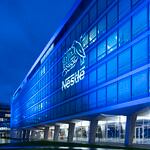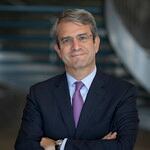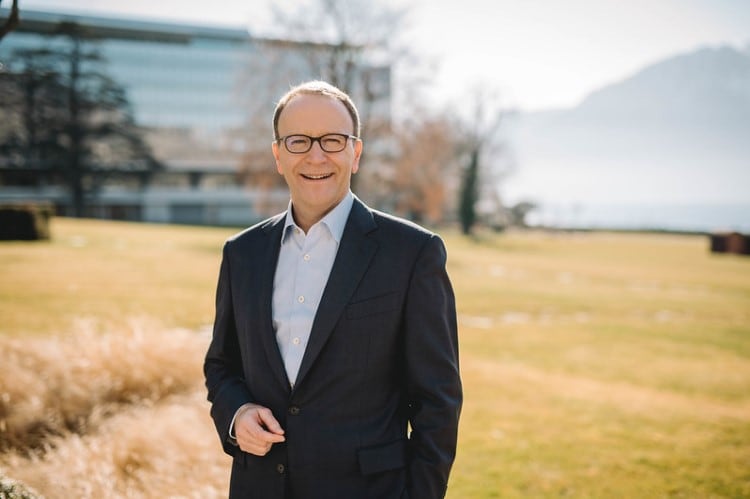The world’s largest food and beverage firm has replaced Mark Schneider with long-serving Nestlé executive Laurent Freixe in what some analysts have described as a ‘surprise’ move.
Schneider ‘has decided to relinquish his roles as CEO and member of the Board of Directors’, the Swiss company said Friday, August 23, 2024 marking the end of Schneider’s 8 years at Nestlé and the ascent of Freixe, a Nestlé employee since 1986, to the top job from September 1.
But is the reshuffle a complete surprise?
As reported in DairyReporter in July, the food and beverage major reported mixed H1 2024 results, with flat growth in dairy and only marginal growth in RIG and price-driven organic sales growth.
In dairy, the company reported market share losses in Zones LATAM and AOA and negative growth for its infant nutrition business in Greater China. A spokesperson for the firm told this publication that its dairy business had been impacted by portfolio optimizations ‘as we focused on fewer but better-performing products’. Challenging market dynamics in Asia, such as the inflationary environment in China, had also had an effect on sales, we were told.

Dairy growth flattens at Nestlé
The food major reported dairy market share losses and negative growth for Infant Nutritiion in China as its share price took a hit following the announcement . . .
Addressing the press, Schneider said that the pricing environment ‘has become more challenging’ and acknowledged consumers continued to trade down.
“The general context is that consumers are under pressure, driving higher price elasticity, [which has increasingly] contributed to pressure on pricing as consumers seek value,” he said.
“The swing factor lately is increasingly competitive intensity to address this environment. Retailers are competing for their share of a tighter consumer budget so food and beverage companies…are responding to a whole new level of promotional intensity across categories.”
Schneider added that the Swiss firm had seen ‘pricing come down faster than expected’ in H1 2024, leading it to downgrade its FY24 organic sales growth outlook to ‘at least 3%’ from ‘around 4%’ previously.
What Nestlé is getting right
In its H1 24 results, Schneider highlighted that the food major had returned to normalized growth led by Real Internal Growth (RIG) of 0.1%. RIG refers to growth generated by volume and product mix. This was the first time the firm had posted positive RIG since before the negative impacts of the COVID-19 pandemic. In the company’s FY23 results, RIG decreased -0.3% and -2.0% in Q1 2024 (-2.0%), but bounced back to 2.2% in Q2 2024.
However, organic growth (2.1%) in H1 was still driven almost entirely by pricing, up 2.0%.
“RIG momentum has been reignited across Nestlé in the second quarter,” Schneider said. “This rebound was broad-based across our various zones and categories as we prioritized driving volume, mix and market share -and one of our main growth drivers] was coffee.”
As reported in BeverageDaily, the performance of Nestlé’s global coffee brands Nescafé and Nespresso was a highlight of the company’s H1 sales.
The firm also stepped up its product launches while coffee innovations such as the Nescafé espresso concentrate coffee and the Vertuo system hold high promise for the company in the long run.
Coffee was also the largest organic growth contributor to the group’s organic sales, with mid single-digit growth driven by Nescafé, Nespresso and Starbucks.

From compostable capsules to iced brews: Coffee innovation helps drive growth at Nestlé
Nestlé has stepped up innovation across its business: with 15% more product launches across the first half of 2024 than the same period last year . . .
Meanwhile, pet food brand Purina PetCare delivered mid single-digit growth with premium brands Purina ONE, Purina Pro Plan and Fancy Feast enjoying continued momentum. Sales in confectionery grew at a high single-digit rate led by KitKat, with water delivering mid single-digit growth on S. Pellegrino momentum and a rebound in Perrier; and infant nutrition sales posting low single-digit growth.
What's next? From raising performance to ‘rallying the troops’
Who is Laurent Freixe?

Nestlé’s incoming CEO joined the Swiss firm in 1986 and has since served across different businesses, markets and Zones; managing Zone Europe from 2008 to 2014, taking over as CEO of Zone Americas and then progressing to his current role of CEO Zone Latin America. Freixe has also served on the Nestlé executive board for 16 years and has led global corporate initiatives to improve productivity, increase operational efficiency and drive innovation.
Nestlé reportedly has a 'full pipeline' of new products to roll out in the second half of 2024, with a 20% total planned increase in innovation and renovation launches by year-end.
In an investor call, Freixe made it clear that investment in innovation would form a big part of his strategy in order to drive organic growth and grow the company's market shares globally.
“We have an unmatched category and geography mix, a very strong portfolio of iconic brands and unique competitive advantages in route to market, R&D, and manufacturing,” the incoming CEO said. “While the food and beverage industry has gone through significant changes in recent years, our top priority, my top priority, is to drive sustainable top-line growth and or through market share gains.
“We will relentlessly focus on meeting consumers and customers' needs. We aim to do this in a decisive and disciplined way through increased investments behind innovation, as well as behind our brands.
“We will accelerate our genetic transformation to be a real-time, intelligent enterprise, and to be connected from farm to fork; that is, data and AI-powered. We will continue our journey towards achieving net-zero emissions while being mindful of natural resources, nature, and biodiversity.”
“The big focus will be on organic growth, market share gains, market share gains to drive organic growth. That requires investments in the brands [and] in growth platforms. And my objective is to create space with the management team to allow for those investments.”
“To do this, we will need to be very strong on productivity, cost efficiencies, and generate the funds to invest incrementally behind the brands and the growth platforms,” he added.
While Nestlé chairman Paul Bulcke declined to explicitly comment if the chief executive change was more culture- or performance-related, Freixe hinted that improvements to both would be needed.
“[We want to be] engaging with people and mobilizing the entire organization top to bottom," he said. "I see as absolutely critical that we are probably the most global and the most local company at the same time. Those will be [my] top priorities – investing in the business, connecting with the consumers and the customers, understanding their needs, and continuing the transformation in areas that will be critical for the short-term long-term. But first – rally the troops."
“It's absolutely critical to energize the front line and invest in the business, raise our game when it comes to quality of execution, and live up to our values and principles.”
He reaffirmed the company's focus will remain on investment in core brands, including Nescafé, KitKat, and Maggi, which account for 70% of sales.
"Not everything is equal in the portfolio, so we want to make sure that we resource and support the best possible way: the core. And in the same vein, everything that has to do with simplifying processes and agility of the organization."
The incoming chief executive however declined to say if the current FY24 guidance of at least 3% organic sales growth and moderate increase in margins would remain in place. "If we were changing the guidance at this current time, we would have announced that. I don't see anything there that is relevant to be [aired] now in specifics."
Nestlé's shares fell 1.8% this morning and have lost more than 11% of their value over the course of 2024 so far; year-on-year, they are down more than 16%.

